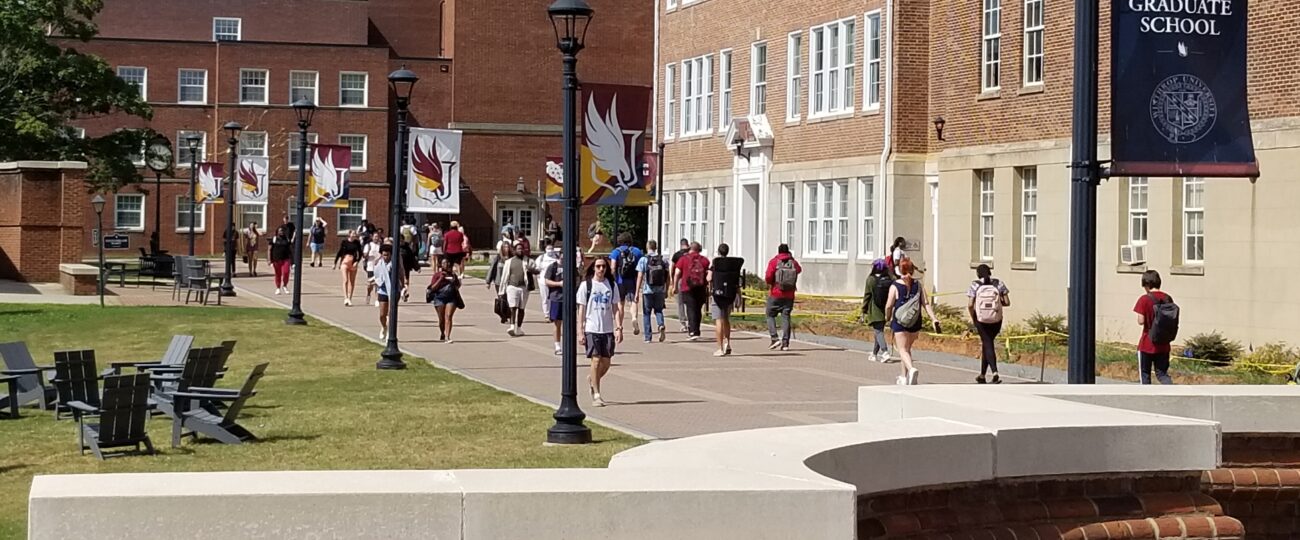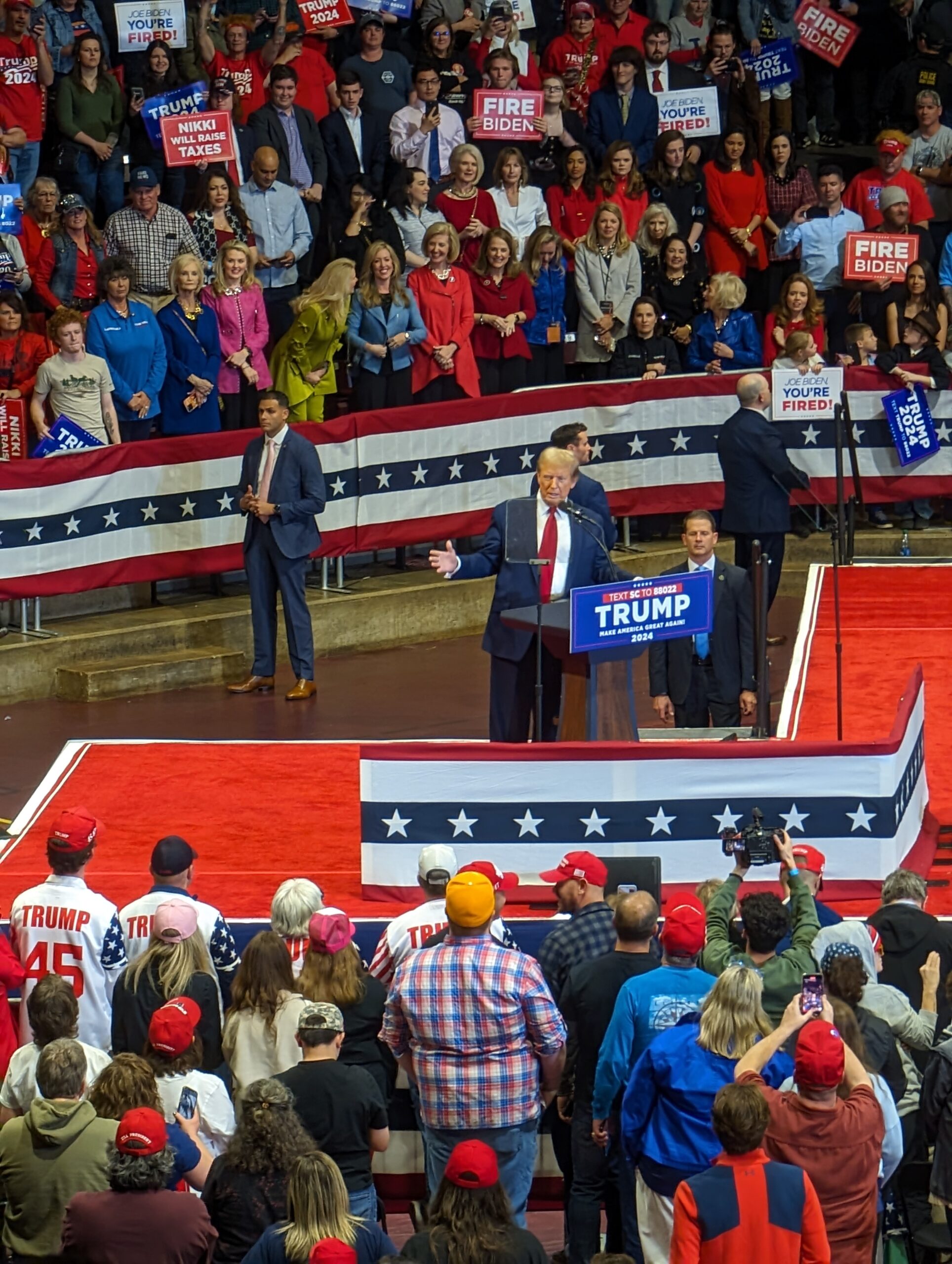It is undeniable that student policy has become stagnant at Winthrop University.
While some efforts have been made to improve the campus, many of the so-called upgrades have led to more questions than answers. The solution to this issue would be to more thoroughly involve the students and faculty in policy-making decisions. This is not a controversial statement, and is in fact the basis for accountable student government.
What efforts has the university engaged towards this goal? The pillar of Winthrop student government is the Council of Student Leaders (CSL) and the student body President, and it is through this organization that students are meant to affect policy. According to the CSL’s constitution its purpose is to “serve as the official student voice to the Winthrop University Board of Trustees and administration,” and therefore students expect this organization to be as accurate a representation of the student body as possible.
Why, then, does Winthrop seem to seek to take up an anti-student and pro-profit policy stance? It is because the CSL does not act as a representation of the student body, and instead acts as a careerist institution, making itself right at home in the for-profit university model as a resume filler, a status symbol, and acting in service of a particular establishment to maintain anti-student policy.
The CSL is, for one, not a directly elected body. Instead, members are appointed either by their status as the President of a student organization, or via the Dean of their respective university college. Each college has one student designated as their representative by their respective dean. As for the student organizations, only a handful are represented: DiGs Student Union, Resident Student Association, Inter-Fraternity Council, Panhellenic Council, National Panhellenic Council, Student Alumni Council, Association of Ebonites, the National Association for the Advancement of Colored People (NAACP), Serving Others and Reflecting (SOAR), the Sexuality and Gender Equality club (SAGE, formerly GLoBAL), Winthrop Ambassadors, and the Student Athlete Advisory Council. The CSL does, however, have a popularly elected President and Vice-President.
The particular powers granted to this body by its constitution are vague. In terms of its ability to affect policy, it is able to make appointments to various campus committees (such as the Cultural Event committee) and oversees the chartering as well as funding of student campus organizations. The constitution makes a further provision that the CSL has the duty to “perform such acts as are necessary to advance student welfare” which should therefore be a central concern for all their actions.
The attitude of CSL as of late has neglected the standard student welfare students wish to see at the university. The CSL is meant to be the voice of the student body in its affairs with the Board of Trustees. Instead it has, however, become simply a student auxiliary of this board, confirming their decisions with the smiling faces of Winthrop students. This past year, for instance, the board approved a measure towards efforts to make Winthrop a laptop-only campus.
This would entail that every student own, borrow, or lease a laptop of particular technical specifications as a required part of their classes. It would be coupled with decisions to supposedly improve the internet capabilities on campus, and to cut back on the amount of public computer labs. Their defense was they had spoken with a handful of CSL members who concurred with their decision.
Efforts were made to stymie this policy project, as many, including myself, felt that it would put lower income students at a huge disadvantage. In a school that is consistently losing students, this would only further hurt its bottom line. The efforts of the Students for Action and Accountability (SAA) and their activist coalition managed to delay the implementation of this project, but in their activities they found a peculiar obstacle: the CSL.
The first time I went to a CSL meeting as part of this coalition I was met with the most unapproved looks. “It sounds like you’re trying to compete with us,” one of them said. We explained that accountability, not competition, was our goal. Indeed in their view, however, we were stealing their spotlight, making them look incompetent, and due to this we continued to receive a cold demeanour from our fellow students in the policy making world.
While I was unable to attend the chartering meeting for SAA, many of the details are public knowledge. What is known especially is that the CSL managed to drag out a normally 20 minute long session into almost an hour of questioning. These questions transformed from the usual chartering procedure to irrelevant issues and personal questions. Again the issue of competition came up, and a new word popped up; “hostile.” The SAA would continue to go unchartered due to “paperwork issues.”
As someone who has been involved in SAA, I can confidently say that their actions have never been in competition with CSL. It has always been for the purpose of spreading awareness and organizing students for action. It is a safe place for students and organizations concerned with campus conditions to express and materialize their concerns. For CSL to say that this is hostile competition is itself a kind of Freudian slip — showing their true nature. They understand they do not fulfill this role for the student body, and any attempt to create an organization that does will surely cast doubt on their activities. Through this they also reveal that they do not have the capacity for accountable student government, as every free society has non-governmental institutions, organized by the people, to affect policy. The ability to effectively mediate their concerns is key in having a democratic political system.
Winthrop University used to have a more democratic student government, but in doing research for this article, it was incredibly difficult to come across any information on it — almost like it had been scrubbed from existence. The last President of this student government said they had actively fought for its continued existence, so we know it was not completely unpopular.
A proper student government must be accountable to the students it serves. What form this will take for Winthrop can only be decided by the people in an organized fashion. While the constitution for CSL can be amended by a two-thirds vote, it can only be ratified by the Board of Trustees. It seems unlikely that either institution would be willing to discuss, let alone enact, the broad structural changes necessary in order to create a more democratic student government. CSL has instead seemed to be content in only being an auxiliary to the wider administration, in order to fill their resumes and make friends. They are more worried about their jobs and their social status than the responsibilities it entails. This is at least the impression they give the student body through their actions. A new or reformed student government would have to first of all decouple itself from the rule of the board, and foremost be a representative of the student body that prioritizes their well being over the profits of the university. At a school with crumbling infrastructure and a ruling board with little interest in student welfare, students require this kind of change. Either student government must change, or the students will change student government.




